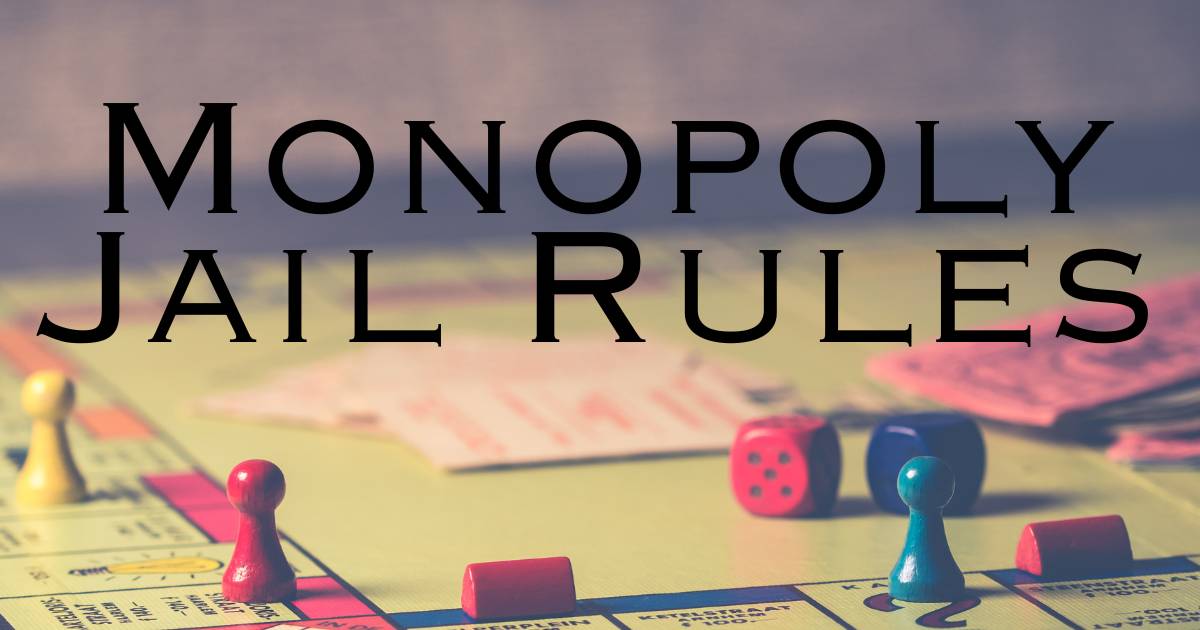In the world of Monopoly, every move counts, and sometimes, those moves land you in jail. But fear not, because even behind bars, there are advanced tactics you can employ by following Monopoly jail rules. With the help of Apex Gaming 88, manage your property portfolio and make calculated investments that will set you up for success when you’re finally released.
Table of Contents
The Significance of Monopoly Jail Rules

Before we dive into the nitty-gritty of managing your property portfolio from jail, let’s understand why jail is such a crucial aspect of the game.
Landing in jail can be a game-changer. It might seem like a setback, but as seasoned Monopoly players know, it can actually be an opportunity in disguise Monopoly Jail Rules. Jail, as it turns out, can become a strategic advantage. How, you ask? Well, that’s what we’re here to explore.
Property Portfolio Assessment
The first step to mastering Monopoly jail rules is to conduct a thorough assessment of your property portfolio as soon as you find yourself behind bars. It’s like taking a moment to check your inventory in a video game – you need to know what you have to work with.
Consider the following factors in Monopoly jail rules:
1. Current Property Holdings: Take stock of the properties you own. What color sets do you have? Are there any properties you need to complete sets? What’s your overall property value?
2. Opponents’ Positions: Who are your opponents, and what properties do they own? Are there any potential trade opportunities or threats to your strategy following Monopoly jail rules?
3. Game Dynamics: Assess the current state of the game. Who is leading in terms of property ownership, and who has the most cash? What properties are in high demand?
Once you’ve gathered this information, you can start crafting your jailhouse strategy.
Advanced Property Management Strategies

Trading Properties from Jail
You might be locked up, but that doesn’t mean you can’t engage in property Monopoly Jail Rules negotiations. Trading properties can be a powerful move, even from behind bars. Here’s how to approach it:
Assess Trade Offers: While in jail, pay close attention to any trade offers that come your way. Analyze whether the proposed trade benefits your long-term goals. Will it complete a color set for you? Will it give you leverage over an opponent?
Strategize for the Long Term: Think about how the trade aligns with your overall strategy. Consider whether it brings you closer to a monopoly on a color group or helps you secure properties with high rent potential.
Beware of the Trade Tax: Keep in mind that trading properties can be costly. There’s a trade tax to consider, so be sure that the potential benefits outweigh the cost.
Upgrading Assets
Jail time can be an excellent opportunity to invest in your properties and upgrade them. Building houses and hotels can significantly increase their rent value. Here’s how to approach it:
Select the Right Properties: Not all properties are created equal. Focus on upgrading properties that have a higher rent potential based on the frequency of landing on them.
Strategic House Placement: When upgrading, think strategically about where to place your houses and hotels. Are there properties that opponents frequently land on? Maximize your investment by building on those spaces.
Balancing Act: Keep in mind that upgrading properties comes with a cost. Be sure you have a sufficient cash reserve to cover your expenses while still being able to negotiate and make necessary deals.
Mortgaging Holdings
Mortgaging properties can provide you with much-needed liquidity while in jail. It’s like a Monopoly version of taking out a loan. Here’s how to make it work for you:
- Assess Your Financial Situation: Evaluate your cash flow and determine if you need additional funds to make strategic moves upon your release from jail.
- Mortgage Strategically: Don’t rush to mortgage all your properties. Consider which ones you can do without temporarily. Mortgage those that won’t severely impact your long-term plans.
- Plan for Unmortgaging: Remember that mortgaged properties can be unmortgaged at any time by paying the mortgage amount plus 10% interest. Factor this into your financial planning.
Calculated Investments from Jail

Investing wisely is a hallmark of successful Monopoly players. Even while incarcerated, you can make calculated moves to enhance your position.
Strategic Property Acquisitions
While in jail, assess whether acquiring new properties could strengthen your overall position. Here’s how to evaluate the situation:
Completing Color Sets: Consider whether acquiring a specific property would complete a color set for you. Monopolies provide significant rent advantages.
Trading Opportunities: Keep an eye out for opportunities to acquire properties that your opponents need to complete their color sets. You can use this as leverage in negotiations.
Assessing Opponents’ Vulnerabilities: Analyze your opponents’ situations. Are they cash-strapped and in need of quick funds? This might be a chance to acquire properties at favorable terms.
Timing Is Everything
In Monopoly jail rules, timing can make or break your investments. Here’s how to time your moves effectively:
Exploiting Vulnerabilities: Monitor your opponents’ situations closely. Are they low on cash? Is someone nearing your properties? Timing your investments to capitalize on their vulnerabilities can be a game-changer.
Market Trends: Pay attention to the dynamics of property ownership in the game. Are certain color sets in high demand? Are there patterns emerging in players’ preferences for property acquisition?
Negotiation Opportunities: Consider how timing can influence negotiations. Are opponents more willing to make deals when they’re in dire straits? Use this to your advantage.
Negotiation Skills
Negotiation is a cornerstone of Monopoly, and being in jail doesn’t exempt you from this critical aspect of the game.
Influence Property Trades: While incarcerated, you can still influence property trades. Craft deals that work in your favor, whether it’s acquiring properties you need or trading away those that no longer serve your strategy.
Form Alliances: Forge alliances with fellow inmates. Work together to achieve common goals, such as completing color sets or targeting a mutual opponent.
Craft Agreements: Create agreements with opponents that benefit you in the long run. Consider arrangements like rent discounts or future trade deals.
Planning for Future Turns
A successful Monopoly player isn’t just thinking about the present; they’re planning several moves ahead. Even from jail, you can strategize for your eventual release.
Long-Term Property Acquisition
Use your jail time to devise comprehensive Monopoly Jail Rules, long-term property acquisition and development strategies.
Set Objectives: Define clear objectives for your property portfolio. Are you aiming for monopolies, high-rent properties, or a balanced mix? Setting objectives will guide your decision-making.
Anticipate Opponents’ Moves: While in jail, analyze your opponents’ likely future moves. What properties are they targeting? What sets are they trying to complete? Anticipating their actions will help you prepare.
Managing Cash Flow from Jail
Cash flow is the lifeblood of your Monopoly empire. Even in jail, you need to ensure a steady income stream to keep your plans on track. There where Monopoly jail rules helps.
The Importance of Liquidity
Balancing property investments with maintaining liquidity is crucial. Here’s how to strike the right balance:
Assess Your Needs: Evaluate your upcoming financial needs. Do you have mortgage payments, trade taxes, or upcoming property upgrades? Ensure you have enough cash on hand to cover these expenses.
Maintain a Cash Reserve: Always strive to have a cash reserve available for negotiation and investment opportunities. Being cash-strapped can limit your options.
Negotiating Behind Bars
Negotiation remains a powerful tool even when you’re behind bars by leveraging Monopoly jail rules . Here’s how to use it effectively:
Influence Property Trades: Craft deals that benefit your long-term strategy. Whether it’s acquiring properties you need or facilitating trades between opponents, your negotiation skills can make a difference.
Form Alliances: Forge alliances with fellow inmates. Work together to achieve common goals, such as completing color sets or targeting a mutual opponent.
Craft Agreements: With Monopoly jail rules you can create agreements with opponents that benefit you in the long run. Consider arrangements like rent discounts or future trade deals.
Conclusion
Mastering Monopoly jail rules is not just about avoiding penalties; it’s about using your time behind bars strategically to advance your property portfolio and secure victory. Remember, in Monopoly jail rules every turn counts, even when you’re locked up. So, the next time you find yourself in jail in Monopoly, embrace the challenge and turn it into an opportunity to outmaneuver your opponents.



